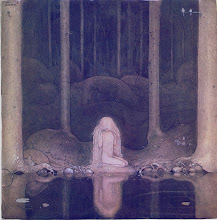Under debatten i Nationalförsamlingen igår upprepade kulturminister Frédéric Mitterand vid ett flertal tillfällen att "piratverksamheten är ansvarig för en ekonomisk och framför allt kulturell katastrof."
Han frågade också, retoriskt: "Souhaitons-nous abdiquer sur internet ce droit que nous défendons depuis des siècles ? Est-ce à la technologie de nous dicter ses règles ou à nous de lui imposer notre choix de société?" "Vill vi, på Internet, abdikera från den rätt vi försvarat i sekler? Är det teknologin som skall bestämma reglerna eller är det vi som skall påtvinga den vårt samhälles val?" (21/7-09)
När kulturministern väljer att uttrycka sig så, har han en lång tradition att falla tillbaka på.
Hans tänkande tycks inspirerat av merkantilismen och Solkungens - Louis XIV - finansminister Jean-Baptiste Colbert (1619-1683), som lade den franska ekonomin under strikt statlig kontroll genom att utveckla ett minutiöst reglerat och övervakat skråväsende och statsunderstödda monopol och karteller. (Colbertism, Wikipedia, eng.).
Det kom även att krävas ett omfattande system av statlig kontroll för att dessa restriktioner, regleringar och lagar skulle efterlevas. Ingenting fick produceras utanför den ekonomiska struktur som konstruerats av statsapparaten. Resultatet för Frankrikes industriella utveckling blev förrödande:
"The result of this network of restriction was the total crippling of economic and industrial growth in France. (...)...competition was hobbled, production and imports limited, and prices kept high. It meant, in short, that consumers were not allowed the option of paying less money for lower-quality products. State-privileged monopolies grew as well, with similar effects; and upon the guilds and the monopolies the state levied increasing and stifling taxes. Growing inspection fees for quality also exacted a great burden on the French economy. (...) The subsidizing and privileging of luxury industries meant a shift of resources away from cost-cutting innovations in new mass-production industries, and towards such areas of high-cost craftsmanship as glass and tapestries."
1665 fick några franska företag rätt till monopol på tillverkningen av spets.
"Domestic cartels are worthless if the consumer is allowed to buy cheaper substitutes from abroad, and so protective tariffs were levied on imported lace. But apparently smuggling abounded, and so in 1667, the government made enforcement easier by prohibiting all foreign lace whatsoever. In addition, to prevent unlicensed competition, it was necessary for the French Crown to prohibit any lace work at home, and to force all lace work to occur at fixed, visible points of manufacture. Thus, as the finance and commerce minister and general economic czar Jean-Baptiste Colbert wrote to a government lace supervisor: 'I beg you to note with care that no girl must be allowed to work at the home of her parents and that you must oblige them all to go to the house of the manufactures...'"
Colbert drev fram en närmast extrem merkantilism i syfte att skydda de industrier som gynnades av staten från all form av konkurrens. Metoderna för att upprätthålla den protektionistiska politiken antog alltmer bisarra former.
Efter hans död framhärdade kung Louis XIV i denna ekonomiska repression till förmån för inhemska särintressen, något som till exempel kom till uttryck i förbudet mot färgglada bomullstyger, calico.
"The new cloth, printed calicoes, began to be imported from India in the 1660s, and became highly popular, useful for an inexpensive mass market, as well as for high fashion. As a result, calico printing was launched in France. By the 1680s, the indignant woollen, cloth, silk and linen industries all complained to the state of 'unfair competition' by the highly popular upstart. The printed colours were readily outcompeting the older cloths. And so the French state responded in 1686 by total prohibition of printed calicoes: their import or their domestic production. In 1700, the French government went all the way: an absolute ban on every aspect of calicoes including their use in consumption."
Ett spion- och angivarsystem utvecklades och smak för blommiga tyger blev en angelägenhet för regeringen.
Den franska calico-industrin krossades effektivt, men smugglingen kunde inte stoppas.
Däremot lämnade många hantverkare landet, de flesta av dem hugenotter - franska protestanter som även fick uppleva en ökad religiös förföljelse - vilket gynnade andra länders uppblomstrande industri.
Som resultat försökte man till slut även förbjuda hugenotterna att lämna landet med sina kunskaper.
"Det franska kulturella undantaget" är en politik och en tankefigur som är central för debatten om den nya digitala ekonomin och om hadopi-lagen.
Att åberopa detta undantag och den hotade inhemska kulturindustrin utlöser samma reaktioner som under 1600-talet; samma retorik och samma önskan om statligt ingripande - med i stort sett samma metoder.
Det kommer även att leda till samma resultat.
Om rådskommunismens relevans (ur OEI #104–105)
10 månader sedan
